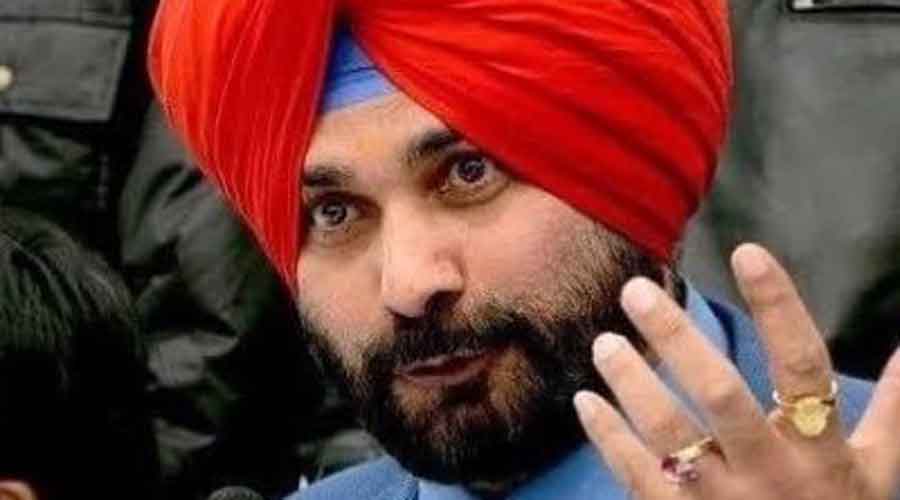Wrong choice
Sir — With less than a year to go for the Punjab assembly elections, the Congress has appointed the former minister, Navjot Singh Sidhu, as its state unit chief in spite of reservations expressed by the chief minister, Amarinder Singh (“Sceptre games”, July 21). It would help to remember that Sidhu had spent 13 years in the Bharatiya Janata Party before joining the Congress four years ago and had also flirted with the idea of joining the Aam Aadmi Party in between.
Sidhu joined the Congress ahead of the 2017 assembly elections. He was given a cabinet berth in the state government but fell out with the chief minister soon enough. Singh did not approve of Sidhu’s visits to Pakistan and was also opposed to providing a ticket to the latter’s wife for the 2019 Lok Sabha elections. Moreover, Sidhu has scant support among party workers, with many arguing that his elevation is a result of his association with the Gandhis. On the other hand, Singh commands the respect of the people.
Whether Sidhu’s appointment as state president is harmful for the government and the party will be clear in the upcoming months. It will be a significant challenge for Sidhu to garner the support of the old guard, particularly the long-time loyalists of the chief minister.
As of now, it seems that the crisis within the Punjab Congress has come to an end. But the forced and uneasy truce is fragile. In the run-up to the assembly elections, the nomination of party candidates and other critical decisions might trigger another round of friction, hampering the party’s poll prospects. Sidhu must bury the hatchet with Singh; they must work together for the 2022 assembly elections.
S.S. Paul,
Nadia
Sir — For now, Navjot Singh Sidhu, as the state unit president, might have his way and prevail over Amarinder Singh, but it does not augur well for the Congress. The Punjab assembly elections are a few months away and it is one of the only states where the Congress can still hope to win. It is an open secret that the Congress won the 2017 elections simply because of the goodwill and reach of Singh amongst the voters. Alienating the chief minister who, unlike Sidhu, is a mass leader, is not a wise move. The Gandhis should have thought things through before taking this controversial decision.
Bal Govind,
Noida
Sir — Since Navjot Singh Sidhu is close to the Gandhi family, it was a foregone conclusion that he would get a vital post in the Punjab Congress Committee. Thus, his elevation to the position of state unit chief is not surprising. This, however, will now pose problems for the chief minister, Amarinder Singh. Sidhu and Singh have been at loggerheads with each other for a while. This animosity will certainly reflect in the crucial decisions — including the selection of candidates — that need to be taken for the 2022 polls. One can only hope that the two will work out their differences before the party’s electoral prospects are irreparably damaged.
N. Mahadevan,
Chennai
Sir — The Congress high command has made a blunder by appointing Navjot Singh Sidhu as state unit chief. The repercussions of going against the wishes of Amarinder Singh, a strong regional leader, will be felt in the upcoming polls. As chief minister, Singh has tackled crises well and has further endeared himself to the people. On the other hand, Sidhu is mostly in the news for his constant barrage of criticism against the chief minister. The common people in Punjab will not look at this development favourably.
D.V.G. Sankararao,
Nellimarla, Andhra Pradesh
Take note
Sir — A comparative analysis between single men and women in Sweden found that men’s spending patterns cause 16 per cent more emissions than women. This disparity is primarily a result of men spending on fuel for their cars. An earlier study found that in families with only one car, men used the vehicle more often to go to work while women opted for public transport. The European Union’s Green Deal has been criticized for failing to take into account the intersection of gender and environment. Policymakers must understand that gender is a crucial factor in the battle against climate change.
Rishita Chakraborty,
Calcutta











